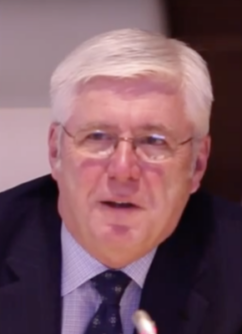“Left of center American donors now largely set the agenda and dominate international giving. There is a strong emphasis on exporting American morality on gender, orientation, and race, as well as a major focus on various development schemes in Africa and elsewhere,” the former Joyce Foundation and German Marshall Fund president writes. “There are no conservative donors that are supporting alternatives to this agenda.”
Overall, giving by conservatives in America to support organizations and projects concerned with foreign policy and national security, as well as to groups and efforts at work “on the ground” in other countries that promote democracy or provide humanitarian aid, seems to have changed in many ways during the past decade, if not longer—concerningly to some, warrantedly to others. Hence this small online symposium.
To begin fostering some discussion and consideration of the important subject, we have simply presented three broad questions to a panel of five respondents:
- Do you think conservative international giving has changed during the past decade and, if so, how and why?
- Have these changes been good or bad, for America and the world, and how and why?
- How do you think conservative international giving should change, if at all, during the next decade?
The respondents, each with deep knowledge and wide experience in the area, are Wilson Center president Mark Green, former Joyce Foundation and German Marshall Fund president Craig Kennedy, Quincy Institute for Responsible Statecraft chief executive officer Lora Lumpe, former Bradley Foundation vice president for program and Giving Review co-editor Daniel P. Schmidt, and Hudson Institute former president and distinguished fellow Kenneth R. Weinstein.
Kennedy’s responses are below. Here are links to the others’ responses: Green, Lumpe, Schmidt, and Weinstein.
Kennedy is also a senior fellow at Hudson and once advised Chicago Mayor Richard M. Daley.

- Do you think conservative international giving has changed during the past decade and, if so, how and why?
It has changed significantly since 1990 until now. In that earlier period, there were multiple conservative funders with a strong interest in Europe, Latin America, and Asia. The Fall of the Berlin Wall made Central and Eastern Europe a special priority. Later, the attacks of 9/11 drove another round of funding focused on the Middle East and Islam. Today, you would be hard-pressed to name any conservative donor that really has a strong interest in international work.
Why did conservative donors abandon largely international giving? Several reasons. First, much of conservative giving in this area was motivated by a strong opposition to Communism and the Soviet Union. By the mid-1990s, neither were a threat to Europe. Second, the wars in Iraq and Afghanistan wore down many Americans, including conservative donors. After 10 or so years of funding work on radical Islam and related topics, many donors simply lost interest. Finally, conservative donors are always more attracted to domestic issues, especially when there is a sense of urgency. The Contract with America in 1994 was one shiny bauble that made many donors on the right focus on issues of this kind. The election of Barack Obama and the push for national health care was another inflection point that pulled donors away from international issues.
Now, it should be noted that conservative donors are not entirely absent from the international arena. A number of them support think tanks and other activities in Israel. Other almost certainly give to museums, historical sites, and other projects in Europe, Asia, and elsewhere. A few conservative international initiatives, like the Atlas Network, have actually grown in the past decade. But conservative international philanthropy, by all accounts, is just a fragment of what it once was.
- Have these changes been good or bad, for America and the world, and how and why?
Left of center American donors now largely set the agenda and dominate international giving. There is a strong emphasis on exporting American morality on gender, orientation, and race, as well as a major focus on various development schemes in Africa and elsewhere. There are no conservative donors that are supporting alternatives to this agenda. While a few libertarian think tanks can make ends meet in Europe, there is very little investment into the generation of conservative ideas and policies. Would this situation be different if a few conservative donors had stayed engaged in international giving? I think so. Even a few conservative donors making strategic grants in Europe and elsewhere in support of a right-of-center view of the world would make a significant difference.
- How do you think conservative international giving should change, if at all, during the next decade?
As noted in the first question, I think there is conservative giving in this area, but it is either highly concentrated on a few countries, like the United Kingdom and Israel, or focused on conventional recipients like universities, hospitals, and museums. What I would like to see is more initiatives that seek to shape public policy debates in other countries, and especially giving that provides support for conservative, broadly speaking, ideas.
The Atlas Network is a good model for what can be done. This modest organization pools money from many donors in the United States and abroad and then makes grants in support of think tanks in Africa, Europe, Asia, and Latin America that develop and promote free market and libertarian policy ideas. While the ideological profile of Atlas is very specific, the organizational model is a good one because it makes it possible for people with modest wealth to engage in the labor-intensive work of international giving.
Pooled funds of this sort could be developed around specific issues, like education or conservation, or they could be set up to focus on a specific geographical region. Indeed, if one or more of the big conservative donors wanted to put up the initial money for such funds, I would guess that there would be more than a few donors willing to be part of such an effort.
The current crisis in Ukraine would be a perfect opportunity for pooled giving. Ukraine is a complicated country and giving to nonprofits there requires time and knowledge. But the value of simply addressing humanitarian needs right now and then the more complicated task of rebuilding civil society in the long-term would be incalculable.


